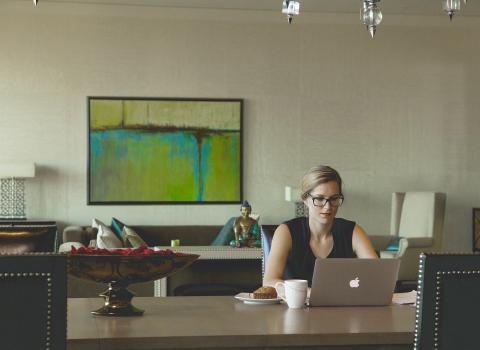I recently listened to a podcast of the BBC Radio 4 In Business program entitled ‘Out of Office: The Rise of the Digital Nomad’ (https://www.bbc.co.uk/programmes/b0b0xjbm). The program got me thinking about how rapidly digital technologies are allowing highly skilled workers to effectively work from anywhere and what impact this is having on more traditional organisations and businesses.
Playing by the rules
It wasn’t so long ago that ‘going to work’ really did involve travelling to a location so that you were then able to carry out your duties. This is still the case for many industries, but in the digital world it is now possible to work from anywhere which has decent connectivity. Commuting to an office somewhere in order to do your day to day work is a massive waste of time and resources. There is also a real shortage of suitably skilled digital professionals so it is important for organisations to create and embrace an environment which provided their team with the flexibility they are looking for.
Digital Nomads who are able and willing to work from anywhere, whilst offering their services to organisations who may be located anywhere else on the planet, is probably the most extreme example, however I think we can all learn something from what they are doing.
So, what can organisations do to ensure that they remain an attractive place to work and ensure that the best digital professionals want to work with them?
The importance of human contact
No matter how good the online tools are which can enable workers to collaborate from anywhere, it is also important not to forget about the real benefit of human contact. At OWA we are always very keen to physically meet with our clients at the start of the relationship, which helps everyone involved to establish the relationship. Once a project is underway we mainly use collaborative online tools whilst we are developing the solution and then we may meet again face to face towards completion.
As online collaboration tools continue to improve and organisations are constantly looking to reduce costs it is, in my opinion, very important to build in some regular human contact to these processes.
The best of both worlds
At OWA we have embraced flexible working and built our infrastructure and culture to fully support it. Although everyone in our team is able to work completely from any location which has a reasonable data connection, we have also maintained our main office which is based in Oxford and a satellite office in London. This allows our team to choose whether they want to work alongside other members of the team or wish to work elsewhere. We feel it is very important to offer this choice to our team, even though in theory we could all work from anywhere, with no fixed base or hub.
This flexibility has meant that we can collaborate face to face when we need or want to with other members of our team and also our clients. Offering a flexible working environment to our team has also helped us retain individuals which helps us to offer solid and reliable support and aftercare services to our clients.
Although in business terms the idea of bringing in Digital Nomads to work on a project as and when necessary, my concern would be how resilient any support or aftercare would be. Although in theory Digital Nomads are ‘always connected’ I don’t really see them being any different to freelancers who may not be available once they move on to their next project.
Always connected and available
It is quite common in a lot of organisations now for there to be a culture where individuals are in effect always on call. Although for a business this may appear to offer advantages, to the individuals involved who feel obliged to respond to messages outside of what used to be regarded as working hours, can be the opposite.
It is important when creating a flexible and modern working environment for your team or organisation generally, to appreciate that team members are not working and contactable at any time of the day (or night).
Creating a modern flexible working environment should be good for both the organisation and for the individuals involved, but it is important for both sides to respectful of each other and not abuse the flexibility which can then lead to resentment.
In our experience embracing and creating a flexible working environment for our team has brought many advantages for both the sides and we are keen to continue exploring online collaborative tools to enhance the experience, but not forgetting that you have to include some regular human contact.


